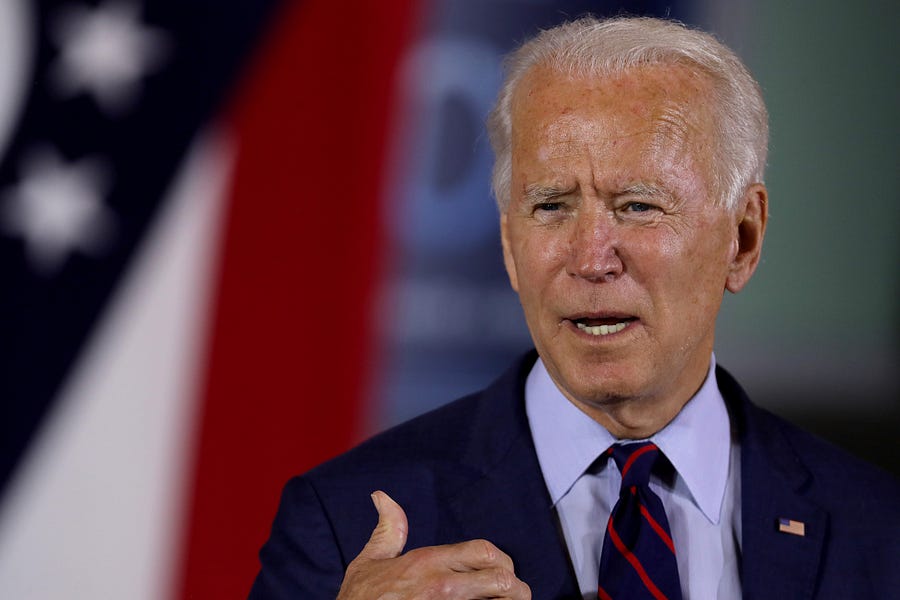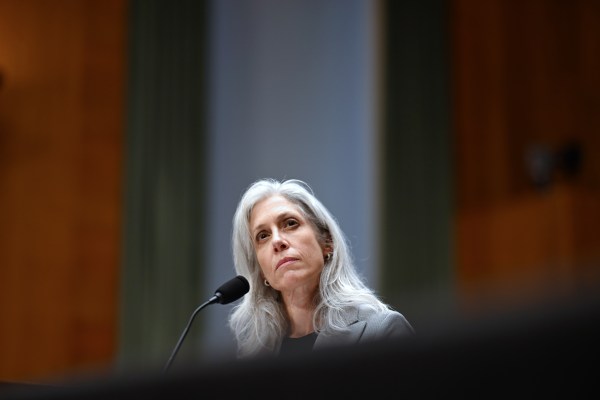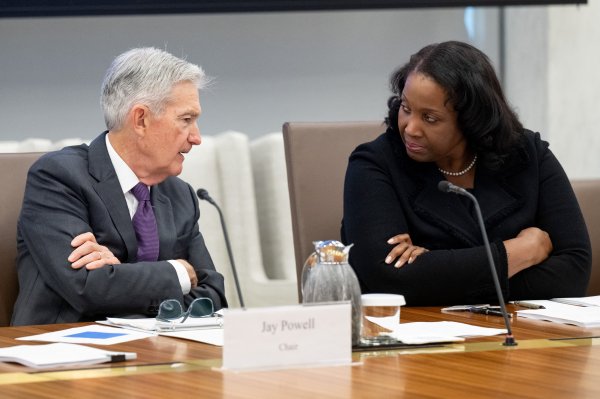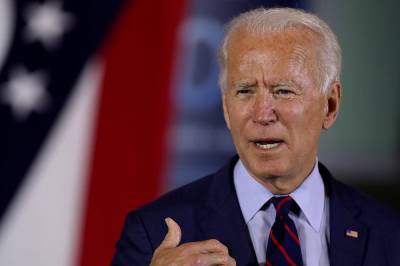It took Saudi King Salman bin Abdulaziz Al Saud and his son, Crown Prince Mohammed bin Salman, a full 24 hours to congratulate President-elect Joe Biden on his victory. The delay shouldn’t come as a surprise; the crown prince and de facto ruler of the Kingdom no doubt hoped—like Donald Trump—that some last-minute change would overturn the results. Biden and his running mate, Kamala Harris, have made no secret of their antipathy toward the Saudi regime. But turning on Saudi Arabia would be a mistake, as it would mean abandoning an opportunity to build on the new Middle East ushered in by the Trump administration.
The U.S. partnership with Saudi Arabia has weathered numerous storms since it began on Valentine’s Day of 1945 with a secret meeting between FDR and Abdul Aziz ibn Saud. It has survived a Saudi-led oil embargo, official Saudi sponsorship of Salafi Islam for decades, and championship of the Arab boycott of Israel that targeted U.S. companies; not to mention an absolutist Islamist monarchy with all that entails. In exchange, the kingdom supported the United States in the Cold War against the Soviet Union, helped manage oil prices as OPEC’s most important swing producer, and stood with the United States as it contended with twin threats from Iran and Iraq, and then, after 9/11, against al Qaeda. Indeed, over the last two decades, the kingdom has rejected much that defined its past. Despite that progress, however, the relationship began to go south during the Obama administration.
Team Obama’s rapprochement with the Islamic Republic of Iran has been well documented. While the Iran deal delivered with pride by the Obama White House (and accepted under duress by congressional Democrats) was sold as a boon to the Middle East—theoretically denying Tehran a pathway to nuclear weapons and shifting the hardliner/moderate balance within Iran—the underlying vision of a Pax Iranica for the region was both in theory and practice unacceptable to both Israel and Sunni Arabs. Worse still, it cemented in place a bizarre Republican-Democrat divide in Washington, with the Democrats becoming the party of (the) Iran (deal), and the GOP siding with Israel and the Sunnis.
Democrats’ all-encompassing anti-Trump worldview only exacerbated the partisan anger over what should be U.S. Middle East policy. Democrats who had opposed the Joint Comprehensive Plan of Action (JCPOA) found themselves required to condemn Trump’s withdrawal from the deal and explain away Iran’s violations of its nuclear commitments. Odder still were the contortions required to downplay or outright condemn Israel’s new peace with the United Arab Emirates and Bahrain.
None of this should suggest that Saudi Arabia had no role to play in exacerbating its own problems—problems, it should be added, that resulted in several pieces of bipartisan legislation targeting the regime. The war with Yemen was a strategic and humanitarian fiasco, staining the kingdom’s reputation around the world, including with fellow Sunnis. And the young crown prince managed singlehandedly to fritter away optimism about his ascent with a series of capricious and appalling moves, including the arrest and imprisonment of political opponents, the internment and extortion of Saudi billionaires at the Riyadh Ritz Carlton, and finally, the murder of former Saudi official-cum-Washington Post columnist Jamal Khashoggi.
In short, it should have come as no surprise that on the anniversary of Khashoggi’s killing this year, Biden’s campaign issued a stark warning: “Under a Biden-Harris administration, we will reassess our relationship with the Kingdom, end U.S. support for Saudi Arabia’s war in Yemen, and make sure America does not check its values at the door to sell arms or buy oil.” What will those threats mean in practice now that a Biden-Harris administration is actually on the horizon?
U.S. “support” for the war in Yemen is now much more limited than it was when Obama began helping the kingdom in 2015 through its efforts to prop up Yemen’s government against Iranian-backed Shiite Houthi forces; the U.S. is providing no refueling or logistical support for the Saudi air campaign. Presumably, a Biden administration will not end operations in Yemen against al-Qaeda and ISIS, or, one would hope, against Iranian weapons shipments to Houthi forces. In 2019, over congressional objections, the Trump administration jammed through an $8.1 billion arms sale including precision-guided munitions and other advanced weaponry. Trump also blocked other efforts to limit arms sales to the kingdom. But weapons deliveries often take place over a series of years. Biden, for his part, could block the weapons’ delivery, even as he contends with questions about advanced aircraft sales to the United Arab Emirates, a deal done in the wake of the Abraham Accords. Biden could also add to the sanctions levied by the United States in the wake of the Khashoggi killing.
What would that mean for Saudi Arabia? At first glance, nothing good, which is why Riyadh was praying fervently for a Trump win. But practically, weapons sold by the United States are also sold by others, including European nations, Russia, and China. Are they as good? Nope, but for the needs of the Saudis, they’ll do. On the energy front, most Saudi oil goes to Asia, and COVID has been devastating as the global economy has slumped and crushed demand. Bottom line: These issues seem likely to drive Riyadh into the arms of America’s adversaries. On the economics front, if Biden restricts fracking and imposes a series of new environmental standards, the U.S. is likely to return to global markets for its energy needs, which will be good financial news for Saudi Arabia whether the White House likes it or not.
More important than the limited or even negative impact of a Biden turn against Saudi, however, is the opportunity that will be missed. Over decades of friendship, the United States has foolishly turned a blind eye to dangerous Saudi policies. Now, at the very moment that Saudi Arabia is embracing generational change, the right choice is to support the important liberalization championed by MBS—a rejection of Salafism, greater rights for women, increased religious freedom—while continuing to reject and condemn his dangerous missteps.
Saudi Arabia is inching ever closer to joining its neighbors and makingpeace with Israel. And while some may suggest that a reignited Biden affair with predominantly Shiite Iran will make that peace easier, the notion of a Sunni Middle East—with or without Israel—aligned against the United States and with China or Russia seems ill-advised. A temperate and intelligent policy from the incoming Biden administration could build on Trump’s success in forging the Abraham Accords, notch the Democrat’s belt with a new peace agreement, and steer Saudi Arabia in the right direction. None of that would preclude another Iran deal, unwise or not. Better still, it would underscore that Biden rejects the fever swamp of partisan Middle East foreign policy, and hopes to encourage a regional peace that will allow the United States to turn to other pressing global priorities.
Photograph by Chip Somodevilla/Getty Images.






Please note that we at The Dispatch hold ourselves, our work, and our commenters to a higher standard than other places on the internet. We welcome comments that foster genuine debate or discussion—including comments critical of us or our work—but responses that include ad hominem attacks on fellow Dispatch members or are intended to stoke fear and anger may be moderated.
With your membership, you only have the ability to comment on The Morning Dispatch articles. Consider upgrading to join the conversation everywhere.